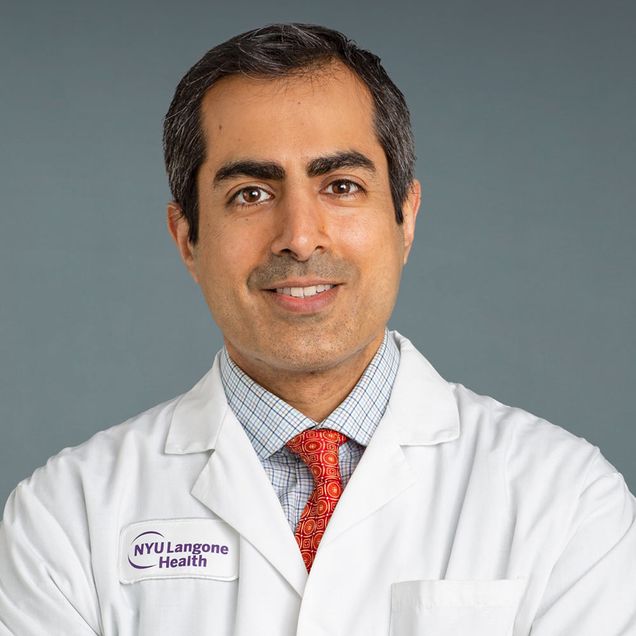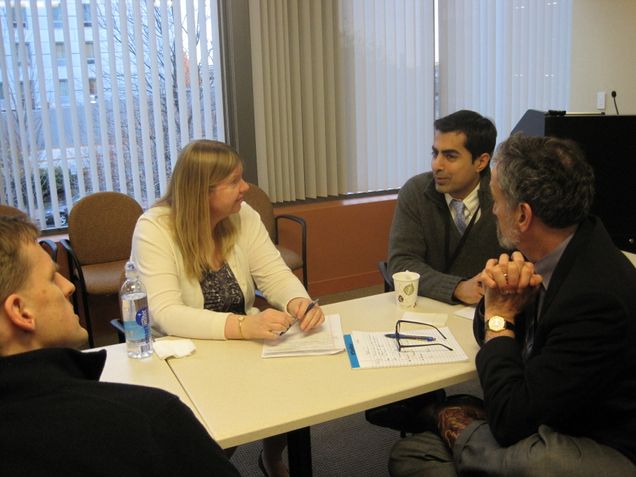RAMS Alumni Spotlight: Dr. Babak Tofighi
In July 20 21, Dr. Babak Tofighi from the 1st RAMS Cohort (2012-2014) graciously answered several questions about himself and his work since completing the RAMS Program.
21, Dr. Babak Tofighi from the 1st RAMS Cohort (2012-2014) graciously answered several questions about himself and his work since completing the RAMS Program.
Babak Tofighi, MD, is currently an Assistant Professor at New York University, and a Research Scientist at Nathan Cline Institute, which is affiliated with the New York State Office of Mental Health. He is also a primary care physician at Bellevue Hospital.
Read on to learn more about Babak!
Tell us about your clinical and research background. What led you to study substance use?
Having grown up in Baltimore and confronted with family dealing with substance use, it was something I was familiar with. But during residency, I was surprised how many patients with substance use needs were not being properly screened or treated. They were treated like a nuisance, and this recurring pattern of care was shocking to me.
Doctors were just not asking about injection drug use, or opioid use. So, my first real exposure to providing care for patients with substance use needs came not from residency or medical school, but from the harm reduction world in New York, including Sharon Stancliff and others at the Harm Reduction Coalition who were doing so much groundbreaking work. I shadowed Sharon as she did naloxone trainings in public parks and in neighborhoods with high opioid overdose fatalities and became inspired by her work.
I then encountered Marc Gourevitch and Joshua Lee at NYU who were doing impactful work at Bellevue Hospital, integrating addiction treatment into primary care, which was completely brand new to me. The mission of Bellevue paved the way of understanding that working with patients with substance use could be a lifelong project, and here are the mentors establishing so much of this incredible work, treating a population that was otherwise being neglected.
In what ways did your involvement with the RAMS Program assist you with your research career?
RAMS was critical in breaking the isolation as a fellow with many career questions around the field of addiction medicine. Having a network of peers and mentors to help you navigate and develop a career in a field that doesn’t get any attention in medical school or residency is important. I was once asked in residency by an attending: “Oh, did you have a substance use disorder and is that why you started?” RAMS early on, offered insights and support from PIs and NIDA staff, which was absolutely critical in creating a lifeline for those looking to work with populations with substance use.
What would you consider an interesting or surprising finding from your research so far?
I do health technology research. The most surprising finding that contradicts misconceptions in the medical community, is that the most vulnerable folks have the highest demand/interest in adopting health technologies to improve their care. For instance, people who were recently incarcerated and have unstable housing have more motivation to adopt technologies to link with treatment. So we try as much as possible to link our patients with the FCC Lifeline Subsidized mobile phone plans if they lack mobile phones or affordable payment plans.
And although text messaging may appear to be simpler with less research backing it as an effective tool for improving clinical outcomes, we’ve demonstrated that patients prefers texts to apps to enhance linkage and retention in primary care, and our recent pilot trial suggests improved retention in telebuprenorphine versus treatment as usual. We need more studies at this point to assess its efficacy.

Tell us about some directions you see your research going in.
At this point telemedicine has completely upended paradigms around in-person clinical care. There’s a lot more work that has to be done around establishing the effectiveness of emerging telebuprenorphine models of care, but its incredibly exciting to see the expansion, finally, of low threshold, on-demand models of addiction treatment nationally.
I’m intrigued with how low-threshold telebuprenorphine models can enhance access to OUD treatment? Whether we can integrate low-cost mhealth tools, such as texting, to enhance linkage and retention in care? And if we can effectively integrate multi-specialty care within a telemedicine paradigm? It would also be ideal to have one national hotline that can link patients to a single source of multispecialty care within their state, whether they need PrEP, HIV treatment, mental health care, our OUD treatment.
What has been a particularly challenging IRB issue you have had recently?
The population we work with, and the methodologies we need to develop to optimally reach and retain them in care can be challenging for the IRB. For instance, with peer-driven recruitment or expanding the role of health information technologies to improve care can often unravel a pandora’s box. For tech research, I typically have to crisscross between legal, our informational technology office, and the IRB to finally get approvals. You have to be very patient and explain why your research methodology is so critical for this particular population, and why not having such research studies is actually unethical as more affluent populations with substance use have more access to technologies and resources to support their recovery.
How has COVID-19 inspired you to focus on new work?
We developed a city-wide telemedicine hotline with colleagues at NYU, Bellevue Hospital, and the NYC Health+Hospitals system to provide any NYC resident with on-demand buprenorphine treatment. This was incredible. It has only reinforced the importance of accelerating the translation of our work into real-world clinical settings. We launched this program in March 2020 and is now being expanded under the leadership of another RAMS alum, Daniel Schatz, and his colleagues at Health+Hospitals to also address co-morbid mental health needs.
Tell us one thing about yourself that readers might find interesting.
I speak 4 languages and really hope to get more involved with international collaborations to address disparities globally around access and implementation of evidence-based practices.
Interview conducted by Sarah Vincent, BA